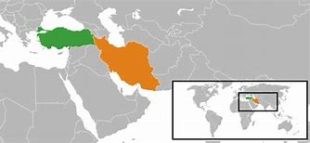RFL/RE – The Iran Migration Observatory, which researches Iranian migration trends, has received an eviction order to leave its premises for unspecified reasons.
Behram Salavati, the respected institution’s director, revealed on August 2 the letter calling for the eviction, but did not give any further details.
The institution, launched in 2018 under the auspices of the Policymaking Research Institute of Tehran’s Sharif University of Technology, has the mission of providing reliable and contemporary data analysis on various types of migration. Since its inception, the observatory has released numerous reports indicating a significant surge in Iranian migration in recent years.
One recent survey it conducted among 12,000 Iranians revealed that at least 60 percent of Iranians are keen to emigrate. Moreover, less than 10 percent of those who have fled Iran expressed a desire to return.
The observatory has also recently shared that 73 percent of Iranian medical professionals, including doctors and nurses, have displayed a willingness to emigrate.
While no reason was given for the observatory’s eviction notice, it comes after Salavati drew attention to the impact of a government crackdown on businesses who fail to police the observance of the mandatory head-covering law by female employees.
“We are now witnessing the closure of some knowledge-based businesses, leading to a concerning brain drain. It appears that many are preparing to close up their businesses within the country,” he said.
“Four years ago we anticipated signs of mass migration. We see various groups, including skilled specialists and elites, ready to leave the country. We have not harnessed our capacity to utilize our human capital, particularly in the elite sector.”
Internet censorship and extensive restrictions in Iran were among the topics raised by Salavati, who notes that such conditions hinder progress for individuals looking to establish stable businesses.
Ali Hosseini, deputy director of the Center for International Science and Technology Cooperation, recently pointed out that due to difficulties posed by a lack of access to the Internet and censorship, educated Iranians were “forced to leave the country, establishing offices in places like Turkey to utilize Internet facilities and conclude their international projects.”
While the government of Ebrahim Raisi claims to support “knowledge-based” initiatives, Salavati said that based on data, specialists at about two-thirds of the country’s knowledge-based companies are looking into the process of emigration.
 Shabtabnews In this dark night, I have lost my way – Arise from a corner, oh you the star of guidance.
Shabtabnews In this dark night, I have lost my way – Arise from a corner, oh you the star of guidance.



